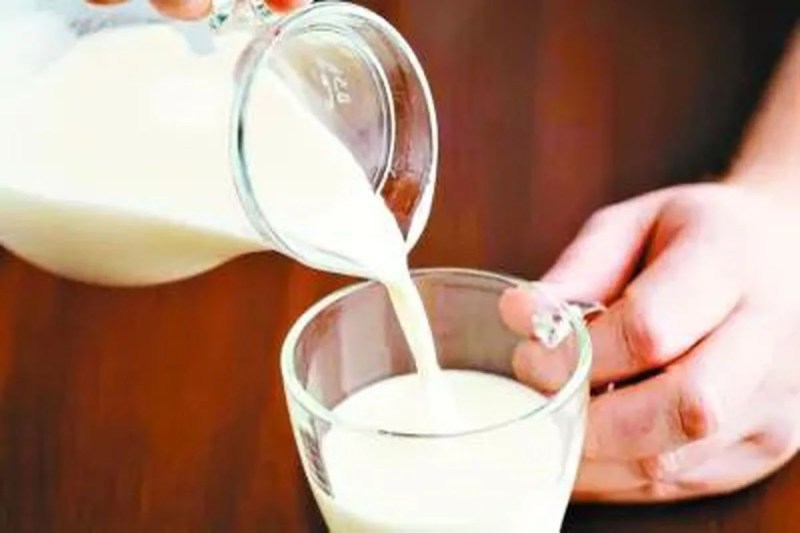
Milk (Image: AI)
Milk Myths Busted: Since childhood, we have been taught at home and school that drinking milk is essential for bones. It's as if without milk, our bones would break, but is this true? Dairy products are a significant part of our diet, yet myths about their health effects still persist. Here are some common myths and what science has to say about them.
Several recent scientific studies are challenging this notion. A review of a large study conducted in 2022 found that the risk of bone fractures was almost the same for those who consumed a lot of milk and those who consumed little. This means that milk is not the only or the best way to strengthen bones.
Key nutrients found in milk (protein, vitamin B12, calcium) can also be obtained from leafy greens, lean protein, and bony fish.
For a long time, it was believed that if you want to stay fit, give up full-cream milk and drink toned or skimmed (low-fat) milk. However, this debate is now ending in the scientific community. A 2023 review found no reason to recommend one type of dairy product over another. Although whole milk contains saturated fat – about 4.5 grams per glass – it is still within the daily recommended limit of 20-30 grams. Therefore, unless you drink three or four glasses a day, there is no cause for concern.
Since the rise of the vegan diet, almond, soy, and oat milk have become very popular. Many people believe they are healthier than cow's milk.
Milk made from soybeans, almonds, or oats does not always contain the same vitamins and minerals found in cow's milk. Some people also add sugar and sodium to them, which are not present in cow's milk. Furthermore, studies have found that the protein found in plant-based milk is not complete, meaning it lacks the 9 essential amino acids found in cow's milk.
Lactose, a natural sugar found in dairy products, is not easily digested by people whose bodies do not produce enough of an enzyme called lactase, leading to bloating and diarrhoea. However, not all dairy products are the same. Some products, such as butter, hard cheese, yogurt, and sour cream, contain very little lactose and usually do not cause problems. Lactase enzyme supplements or lactose-free alternatives are also available.
Milk is good – but not necessarily for everyone and in every form. Consume milk with balance, understanding your health and your body's needs.
Published on:
22 Oct 2025 04:55 pm
Big News
View AllHealth
Trending
Lifestyle

